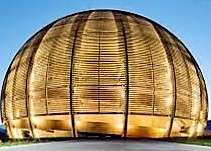Speaker
Description
One of the current limitations of predicting the nuclear astrophysics r-process abundance is the lack of experimental data on neutron-capture cross-sections of radioactive neutron-rich isotopes. These cross-sections are also invaluable for nuclear reactions and nuclear structure in general. Their measurement is currently considered impossible due to the instability of the targets and projectile. We propose a method to overcome this limitation. We plan to select and store fission fragments in a RF system (coined "NG-Trap" [1]), which will form a trapped `cloud target' that will consequently be irradiated by an intense neutron beam. The reacted ions will be mass-selected, identified and counted using a multiple-reflection time-of-flight mass-spectrometer (MR-TOF-MS), thus extracting (n,$\gamma$) cross-sections.
This talk will mainly focus on the NG-Trap system that will be developed for the Soreq Applied Research Accelerator Facility (SARAF) [2], currently under construction in Yavne, Israel. We will further present an existing triple-RFQ system [3], which is presently being set up at Tel-Aviv University for research and development of the cloud target concept, and preliminary estimations of event rates for numerous radioactive target isotopes.
[1] T. Dickel et al., EPJ Web of Conferences 260, 11021 (2022)
[2] I. Mardor et al., Eur. Phys. Jour. A 54: 91 (2018)
[3] E. Haettner et al., Nucl. Instr. Meth. A 880, 138 (2018)
